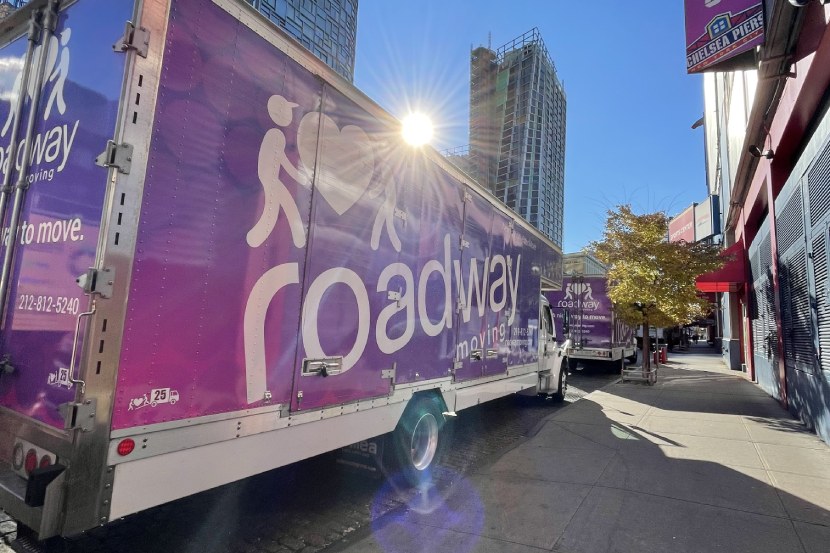

NYC Rent Increase Laws in 2024
We hope that you don’t have any issues with your landlord, but if they dare increase your rent unfairly, you can always count on us to move you to a nicer apartment and leave your landlord atop the dustbin of history!Here is how you know if you are being treated fairly:
Maximum Rent Increase Allowed in NYC
NYC Rent Guideline Board is responsible for choosing the maximum percent for a rent increase for lease renewals of rent stabilized apartments, lofts, hotels and single room occupancies (SROs). In 2022, The Board set up a maximum of 3.25% increase for one-year lease periods and a maximum of 5% increase for a two-year lease agreement. These rules are in power for leases signed between October 2022 to September 2023.

What Are Free Market Buildings and Apartments?
A free market building basically means any apartment that doesn’t have strict rules for rent increase. The only rule is that a tenant must be given notice 60 days before the rent increase. Suppose your landlord doesn’t give you proper notice. In that case, you have the right to remain in the apartment at your current rent until you are given written notice and the period expires.There’s a big chance that you probably live in a free market building since regulated and controlled apartments are often taken, since nobody wants to give them up.
What Are Regulated Apartments?
Regulated apartments are currently the most wanted thing in The Big Apple. They make up about 50% of the total apartment number in NYC. They have strict rules about rent increases, and the landlord cannot catch you off-guard with stressful increase news. If you are in one of those apartments, the Rent Guidelines Board Of New York City is in charge of your rent increases.Living in them not only protects you from illegal rent increases but lets you sublet and renew your lease every year or two.There are two kinds of regulated apartments: rent-stabilized and rent-controlled apartments.If you are still not sure if your place is regulated, you can check by contacting NYC Homes and Community Renewal (HCR).

Rent-Stabilized Apartments
One million apartments in NYC are covered by rent stabilization. Those are the apartments in buildings built before 1974 that have more than six units.For a rent-stabilized apartment, the rule is that the landlord can only increase your rent for a certain percentage when renewing the lease. Currently, fixed increases are:
- For a one-year lease, 0% for the first six months and a 1.5% increase after the first six months
- For a two-year lease it is 2.5%
Those guidelines are renewed each year and, as you can see, are smaller than those for free market apartments.Another way a rent increment can happen is through a landlord’s significant improvements in the building or apartment itself. That way, he must have written proof of every penny spent on that improvement. More on that later.
Rent-controlled apartments
There are about 16,400 rent-controlled apartments in NYC.An apartment is rent-controlled when its legal successor continuously lived in it since July 1, 1971. Yes, it sounds bizarre, but it is true.When the successor dies, only the family member who spent two years living there before the tenant’s death can have their tenancy. Because of these complex laws, there are fewer and fewer rent-controlled units in NYC every year.Rent increases happen when there is money spent to repair a problem in the building. To prevent unwanted increases, tenants ask their landlords to show and guarantee them that everything in the building works fine when they move in. This kind of rent change is called Major Capital Improvement.

MCI – Major Capital Improvement
Major Capital Improvement is an increase in rent for a rent-stabilized and rent-controlled tenant, based on the money spent by the landlord on building significant improvements.For example, replacing the boiler, installing a new security system, or making huge improvements on the roof are considered MCI.The maximum increase amount is 2% of your current rent per year.The increase is calculated based on the cost of the landlord’s improvements and the number of rent-regulated tenants in the building.
Steps to Take To Avoid Rent Increases
Be an aware tenant. Pay your rent on time, and be in contact with your landlord regarding any problems in the place. If you are a good tenant, your landlord will want to keep you and save themselves from the risks that new tenants bring.Also, inform yourself. Know the number of days before your landlord has to give you proper notice, follow the NYC Rent Guideline Board’s fixated percentages, and try to find a rent-regulated apartment.
How to Prepare for an Unwanted Rent Increase
Make sure that you set aside an emergency fund, which you could use to move to another apartment if needed. So if your landlord tries to increase your rent at an unfair amount, you’ll have more options and be able to move to a different apartment instead of having to accept the new terms.
Need Help With Your Move?
Now that you’re an expert in NYC rent increases, does this make you want to move? We have your back anytime you need to make a change, even with last minute moves. We are always here for all your move needs.At Roadway Moving we provide complete local and long-distance moving, packing, unpacking and storage services both to residential and commercial clients. We also offer discounts to students, seniors and veterans.If you need a moving quote you may fill out the form here or give us a call at (212) 812 5240 and one of our moving consultants will happily assist you!
